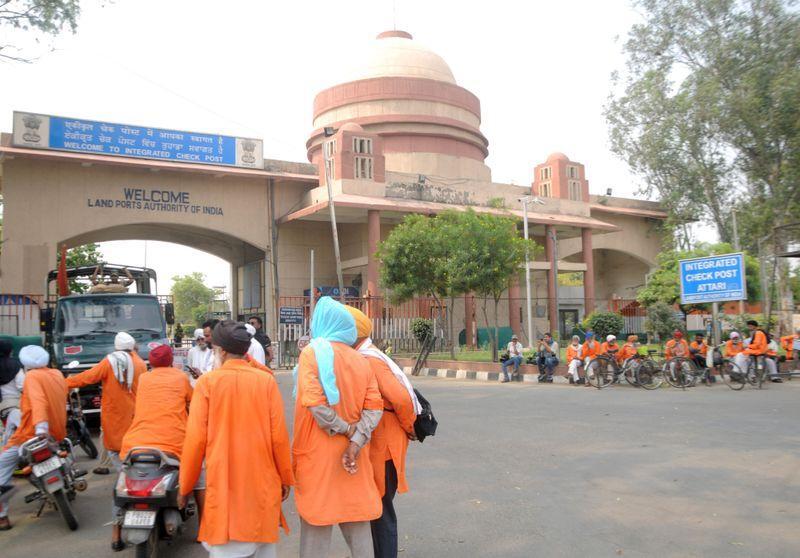
Border Shut: Porters, Transporters Shift to Other Vocations
The sudden closure of the Attari Integrated Check Post (ICP), a major border crossing point between India and Pakistan, has left many porters and transporters in a state of uncertainty. Nine days into the shutdown, the once-thriving trade scene has been reduced to a mere shadow of its former self, leaving hundreds of people struggling to make ends meet. In a desperate bid to survive, many of these porters and transporters have been forced to shift to other vocations, leaving behind their traditional livelihoods.
The Attari ICP, which connects Amritsar, a major city in Punjab, with the city of Lahore in Pakistan, has been a vital trade route for decades. The border crossing has been responsible for a significant portion of India’s imports from Afghanistan, which includes goods such as dry fruits, spices, and handicrafts. However, with the recent tensions between India and Pakistan, the government decided to shut down the ICP, citing security concerns.
The impact of this decision has been devastating for the thousands of porters and transporters who rely on the ICP for their livelihood. Many of them are struggling to find alternative sources of income, and the situation is becoming increasingly dire. “We are finding it hard to survive,” said Gurdev Singh, a porter who has been working at the ICP for over a decade. “We were earning a decent living, but now we are left with nothing. We are struggling to feed our families.”
The situation is not limited to the porters alone. Transporters, who were responsible for ferrying goods across the border, are also feeling the pinch. “We were making a good living, but now we are stuck,” said Ravinder Singh, a transporter who has been operating in the region for over 15 years. “We are trying to find alternative routes, but it’s not easy. The competition is fierce, and we are struggling to make ends meet.”
In the face of this adversity, many porters and transporters have been forced to shift to other vocations. Some have taken up jobs as laborers in nearby factories, while others have started selling goods at local markets. “I used to earn around Rs 5,000 per day as a porter, but now I am earning around Rs 2,000 per day as a laborer,” said Jaswant Singh, a porter who has been working at the ICP for over 20 years. “It’s not easy, but we are managing to survive. We are just trying to make the best of a bad situation.”
The government’s decision to shut down the ICP has also had a ripple effect on the local economy. Many businesses that relied on the trade crossing are also struggling to stay afloat. “The closure of the ICP has had a significant impact on our business,” said Jagtar Singh, the owner of a local spice shop. “We rely heavily on imports from Afghanistan, and the shutdown has left us with no choice but to shut down our shop temporarily. We are hoping that the situation improves soon, but until then, we are struggling to survive.”
The situation is not limited to Amritsar alone. The closure of the ICP has had a significant impact on the entire region, including the city of Lahore. “The closure of the ICP has had a devastating impact on our city,” said a local businessman in Lahore. “Many of our traders rely on the trade crossing, and the shutdown has left them with no choice but to shut down their businesses. We are hoping that the situation improves soon, but until then, we are struggling to survive.”
As the situation continues to unfold, it is clear that the closure of the ICP has had a significant impact on the lives of thousands of people. The porters and transporters who relied on the trade crossing for their livelihood are struggling to survive, and the situation is becoming increasingly dire. The government’s decision to shut down the ICP was taken in the interest of national security, but it is clear that the impact on the local economy and the people who rely on it has been devastating.






